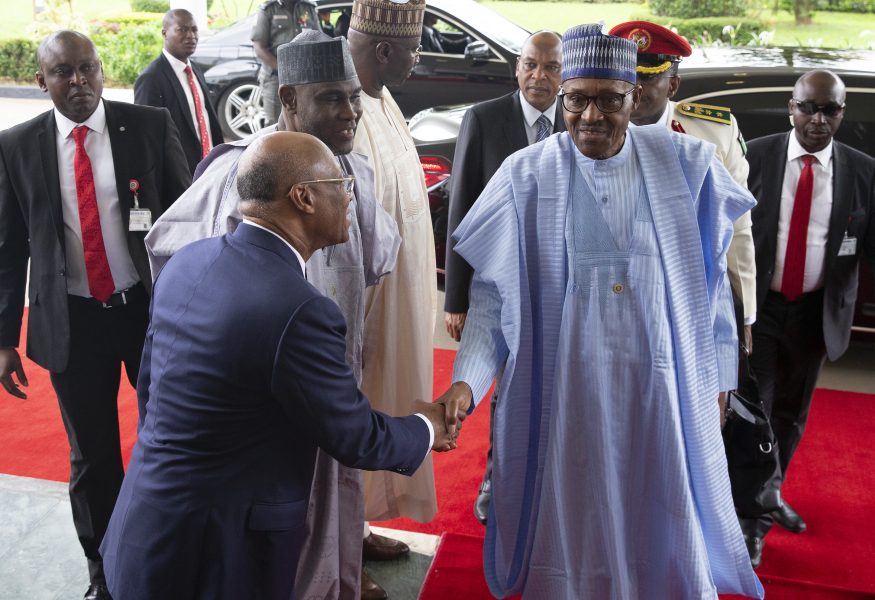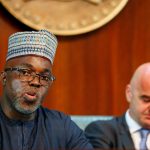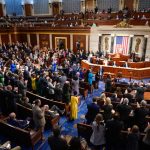Eleven civil society organizations in Nigeria, have called on President Muhammadu Buhari to save the country from global embarrassment and possible ban by assenting to the Companies and Allied Matters Act (CAMA) Repeal Bill that was passed by the 8th Assembly now before him.
Nigeria has one week from today to sign failure of which the country will be embarrassed, a decade of work will be lost and irreparable diplomatic, economic and reputations damage inflicted on the country.
The civil society Organisations are The Civil Society Legislative Advocacy Centre (CISLAC), African Center for Leadership and Strategic Development, Zero Corruption Coalition (ZCC), Center for Information Technology and Development (CITAD), SOTU-Nigeria, National Procurement Watch Platform (NPWP), African Center for Media and Information Literacy (AFRICMIL), Open Alliance, BudgiT, Center for Democracy and Development (CDD) and Women’s Rights and Protection Alternative (WRAPA).
Addressing a press conference on behalf of others, Executive Director, Civil Society Legislative Advocacy Centre (CISLAC), Auwal Ibrahim Musa Rafsanjani, recalled that President Buhari had made commitments to strengthen anti-corruption reforms and join the Open Government Partnership (OGP) in May 2016 during the Anti-Corruption Summit in London in a bid to deepen institutional and policy reforms.
He said: “One of the commitments in Nigeria’s Country Statement issued by President Buhari at the summit was that ‘Nigeria is committed to establishing a public central register of company beneficial ownership information.’ Three years after this bold commitment and two years of implementation of OGP, there is still no Beneficial Ownerships register.”
This legal framework of signed into law, Rafsanjani said “it will lead to the establishment of the electronic web-based open Beneficial Ownership register in Nigeria. The ultimate goal is the establishment of comprehensive database of REAL OWNERS behind the management of private companies operating within Nigerian jurisdiction. If CAMA bill is not signed by President Buhari this week, a decade of work will be lost and irreparable diplomatic, economic and reputations damage inflicted on Nigeria.”
Rafsanjani listed the benefits of CAMA when signed into law to include: “Beneficial ownership register will address Nigeria’s obligations towards; Financial Action Task Force (FATF) whose efforts aim at promoting policies and standards that insulate global financial systems from acts of money laundering and the financing of terrorism and proliferation of weapons of mass destruction (Article 24 and 25); Nigeria’s obligation under the United Nations Convention against Corruption (UNCAC), the global Extractive Industry Transparency Initiative (EITI) implementation of the beneficial ownership standards in extractive sector before the 31st of December, 2019 deadline for Nigeria.Above all, Nigerian will profit as stolen public wealth will be exposed.”
The CISLAC boss also outline the damning implications of not signing the law.
He said: “in the absence of CAMA, we risk the suspension from the EITI initiative where Nigeria has always played an important global role and adjudged one of the best EITI countries. Furthermore, Nigeria is already under pressure from the United States, European Union and other important partners for weak compliance with anti-money laundering legislation, anti-terrorism financing and illicit financial flows. Sanctions will follow if rapid improvement is not achieved right now! In addition, President Buhari’s anti-corruption credentials will receive yet another blow if he fails to act on CAMA.
“We have just missed a huge opportunity to leap forward in the fight against Nigeria’s stolen wealth. The failure to enact the Proceeds of Crime Act (POCA) has inexplicably jeopardized the asset recovery effort, which the Executive champions with great vigour. Many international partners and domestic stakeholders have been horrified to observe the opportunity lost as hundreds of millions of US dollars are awaiting to be returned to Nigeria by the international community. Without POCA, there is no framework to do that in an accountable and transparent way.”
The civil society organizations also advised President Buhari not to appoint persons perceived to be corrupt into his cabinet.
According to Rafsanjani, the appointees must have competence, integrity, patriotism and those who indeed merit the appointment.
























Leave a comment